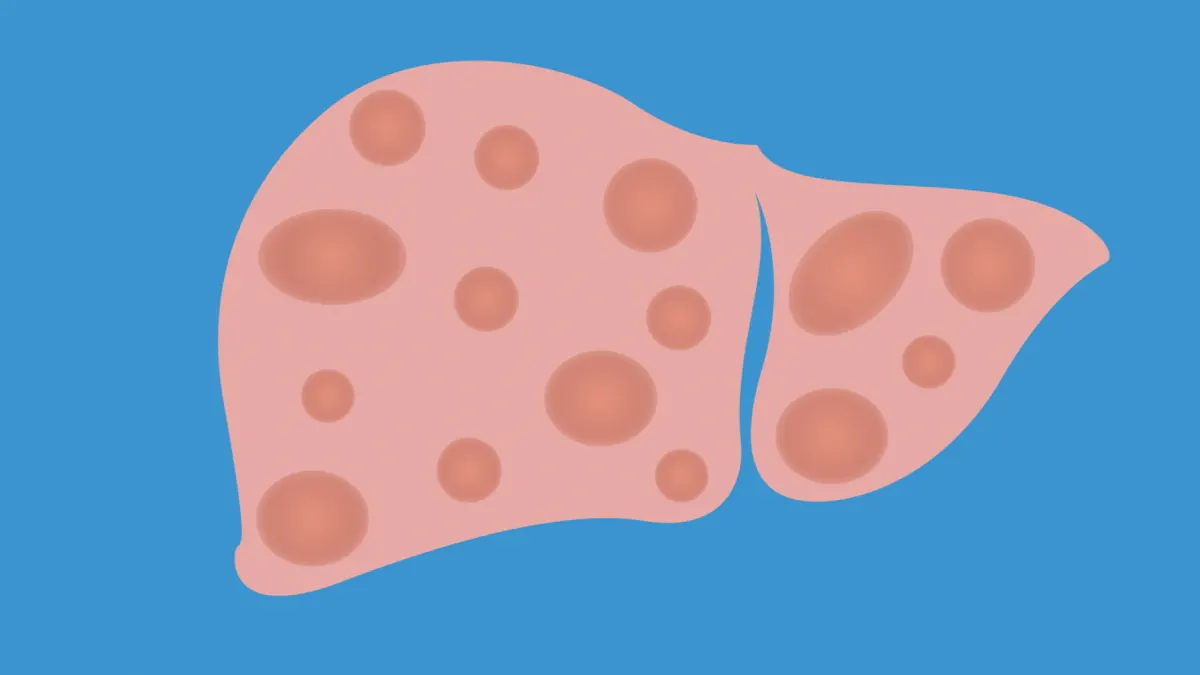
Non-alcoholic fatty liver disease and obesity are strongly correlated. Non-alcoholic fatty liver disease (NAFLD) is a condition in which an individual has excess fat stored in the liver cells. As the name suggests, this type of fatty liver disease is not caused by excessive alcohol consumption but instead is a result of excess weight. Non-alcoholic fatty liver disease is quickly becoming the most common form of liver disease. It coincides with other metabolic disorders such as obesity, insulin resistance, diabetes, hypertension, and cardiovascular disease.
The Link Between Non-Alcoholic Fatty Liver Disease and Obesity
Obesity is a solid contributor to NAFLD due to the inflammation caused by being overweight and excess insulin production in diabetic patients. Excess fat contributes to insulin resistance that forces the pancreas to produce more insulin to manage glucose levels, which is why diabetes is common in overweight individuals.
The increased production of insulin causes excessive glycogen storage in the liver, ultimately increasing the presence of fat in the liver cells. Combined with the behavior of adipose tissue in overweight and obese individuals, where often the metabolism and rate of caloric burn has decreased due to fad dieting, the correlation between non-alcoholic fatty liver disease and obesity is significant.
The Risk of Non-Alcoholic Fatty Liver Disease
In most instances, non-alcoholic fatty liver disease does not cause any symptoms until it results in end-stage liver disease, leading to cirrhosis. If NALFD has not been discovered, monitored, and treated, it leads to non-alcoholic steatohepatitis (NASH), an aggressive form of fatty liver disease. NASH is defined as inflammation in the liver, and if left untreated, could progress to cirrhosis.
It is estimated that most obese individuals will ultimately develop some degree of liver damage. Whether or not this will progress to cirrhosis is not clear; however, it is estimated that the progression of NAFLD and NASH leading to cirrhosis will become the leading cause for liver transplantation over the next decade. About 5 to 12% of individuals who develop NASH will suffer severe complications from cirrhosis.
Cirrhosis is a condition where some form of toxin or insult has damaged the liver cells that ultimately causes scarring in the liver, reducing the liver’s ability to perform its normal function. You may already be familiar with some of the more common causes of cirrhosis, such as excessive alcohol consumption or hepatitis. Yet, what you may not already know is that obesity also can cause damage to the liver resulting in the same end-stage liver failure. As obesity rates are rising in our society, so is the incidence of NAFLD.
Non-alcoholic fatty liver disease is often silent and without symptoms; however, physicians should assume that all obese patients have some degree of fatty liver disease. Often the first direct evidence that someone has a fatty liver is when it is discovered incidentally when the patient might have a CT scan or ultrasound of the liver for other medical reasons.
There are radiographic findings that are typically seen when the liver is imaged by these modalities. As the fatty liver disease progresses, the liver enzymes may become elevated. The liver enzymes can be measured with a simple blood test. Usually, when the liver enzymes are elevated, this is a serious sign that ongoing damage to the liver cells is occurring and should be closely monitored and addressed. However, ultimately the best way to diagnose the extent of NAFLD or NASH is through a liver biopsy.
How to Manage Non-Alcoholic Fatty Liver Disease and Obesity
Currently, there are no approved medications on the market used to treat non-alcoholic fatty liver disease. However, a significant shift in lifestyle habits to include diet, exercise, and overall weight loss, can improve and reverse non-alcoholic fatty liver disease and obesity.
Studies have found that even a moderate decrease in weight by about 5 to 10% will significantly improve the risks associated with non-alcoholic fatty liver disease. Weight loss will reduce inflammation in the body (and liver), shrink the fat within the liver cells, and improve the way the body responds to insulin, ultimately helping the liver function properly.
Bariatric surgery is an excellent treatment option for individuals who have difficulty losing weight or need to lose a significant amount of weight. Before weight loss surgery, surgeons will often recommend that their patients only consume protein shakes for a week to two before their surgery. This will significantly decrease the amount of fat in the liver and shrink its size.
Additionally, bariatric surgery will create a metabolic shift in your body to help you better manage your weight and improve the functionality of your organs. Surgeons and researchers have thoroughly studied this phenomenon and how bariatric surgery creates a physiologic shift in fat storage and insulin productivity. Weight loss surgery can improve non-alcoholic fatty liver disease and obesity conditions, ultimately improving your health and overall life.











